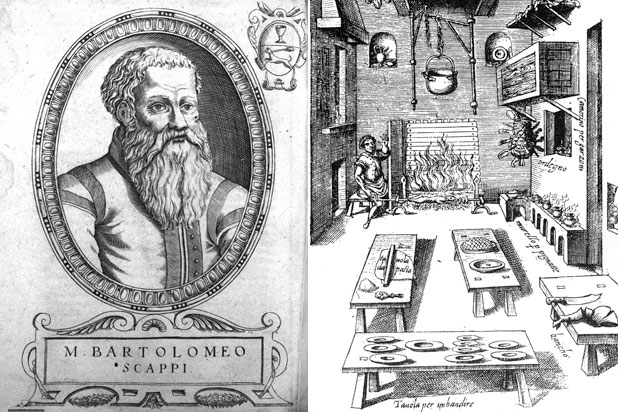10 Chefs Who Changed The Way We Eat
Every time you eat at a restaurant, you're tapping into hundreds of years of culinary history. While chefs today are constantly breaking new culinary ground, there are some who lived and died centuries ago who laid the groundwork for fine dining as we know it.
10 Chefs Who Changed the Way We Eat (Slideshow)
Humans have obviously been eating for as long as we've been around, but the concept of "fine dining" is a relatively new invention. The ancients would hold grand feasts, for sure, but those generally involved simple roast meats and fresh vegetables, eaten "family-style." Over the years the wealthy developed even more elaborate methods to display their wealth through food, and by the time the Renaissance rolled around, the full-time chefs hired by wealthy families were turning out exquisite and intricate culinary creations that only the rich could afford, a precursor to modern super-expensive restaurants.
But there was one invention that revolutionized fine dining more than any other: the printing press. Chefs who had spent years toiling in kitchens perfecting new recipes and impressing their employers were now able to take their skills out of those kitchens and into the kitchens of anyone who had access to one of their books. Suddenly complex sauces, meat and vegetable preparations, and other dishes that today are widely known began to enter the repertoire of chefs throughout the world. And as chefs codified recipes and techniques for the first time, epicures and gastronomes like Brillat-Savarin and Grimod were writing about the joys of eating fine food. Combined, it led to nothing short of a culinary revolution.
There's no time and place more influential for the world of fine dining than France in the 1700s and 1800s (and while great chefs were also hard at work in Asia and elsewhere around the world, we unfortunately don't know as many of their names). While many of the dishes and rich sauces invented by the great French chefs of the past have unfortunately been relegated to the back burner nowadays, their culinary influence – from proper knife skills to braising techniques – are still on display in just about every kitchen in the world. While we might not hear their names often, these chefs are ones that everybody who's ever expressed an interest in cooking (or even eating at restaurants) should know, because without them the culinary world would be a very different place.
Bartolomeo Scappi

Born around the year 1500, Scappi was the personal chef to popes Pius IV and V. In his seminal cookbook Opera dell'arte del cucinare he not only listed about 1,000 recipes for popular Renaissance-era dishes, he also described hundreds of cooking techniques and tools, shows the first published picture of a fork, and even declared Parmiggiano-Reggiano the finest cheese on earth.
François Massialot

Massialot, who lived from 1660 to 1733, served as chef de cuisine for various high-ranking Frenchmen, including Philippe I, Duke of Orléans. He's best known for his Nouveau cuisinier royal et bourgeois, which appeared in several volumes from 1691 to 1734. In the book he not only laid out recipes for the meals he prepared for royals, but he was also the first to alphabetize recipes, and both meringues and crème brûlée made their first appearances in the book.
Dan Myers is the Eat/Dine Editor at The Daily Meal. Follow him on Twitter @sirmyers.
